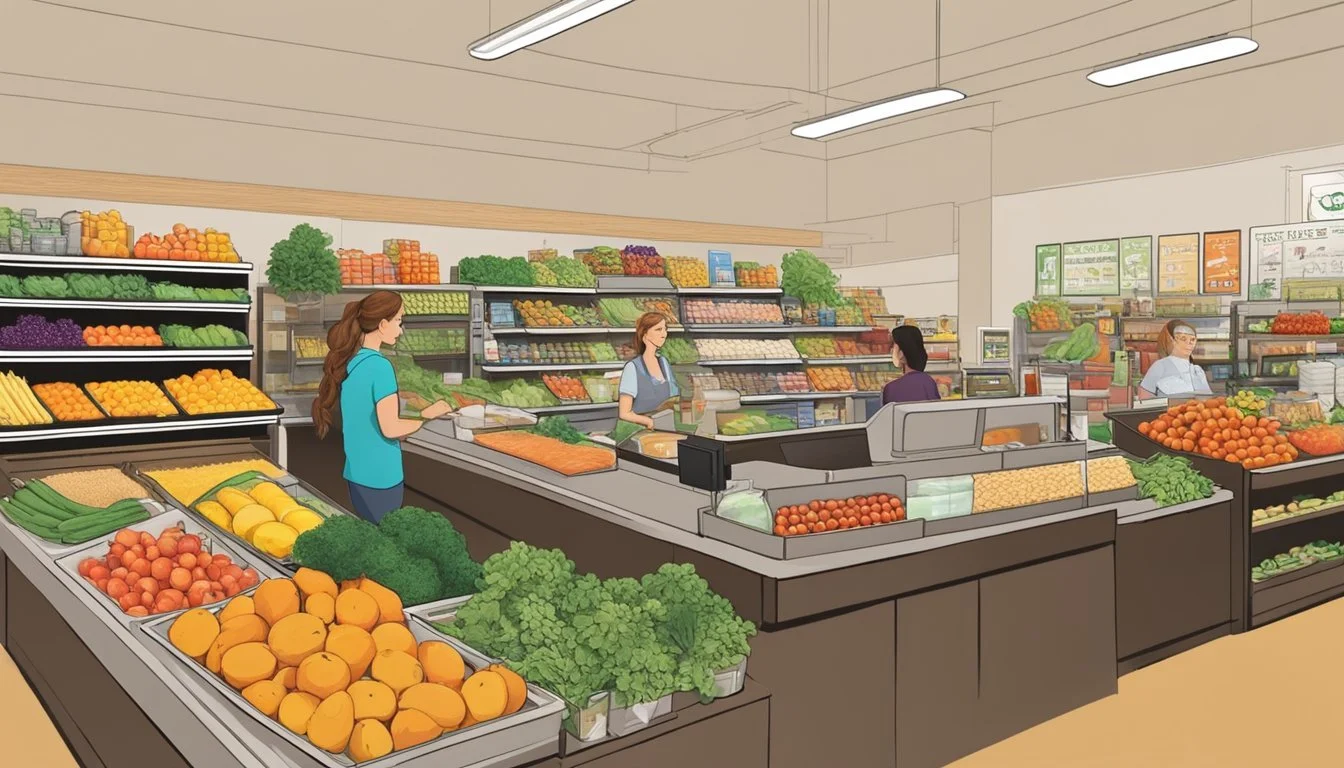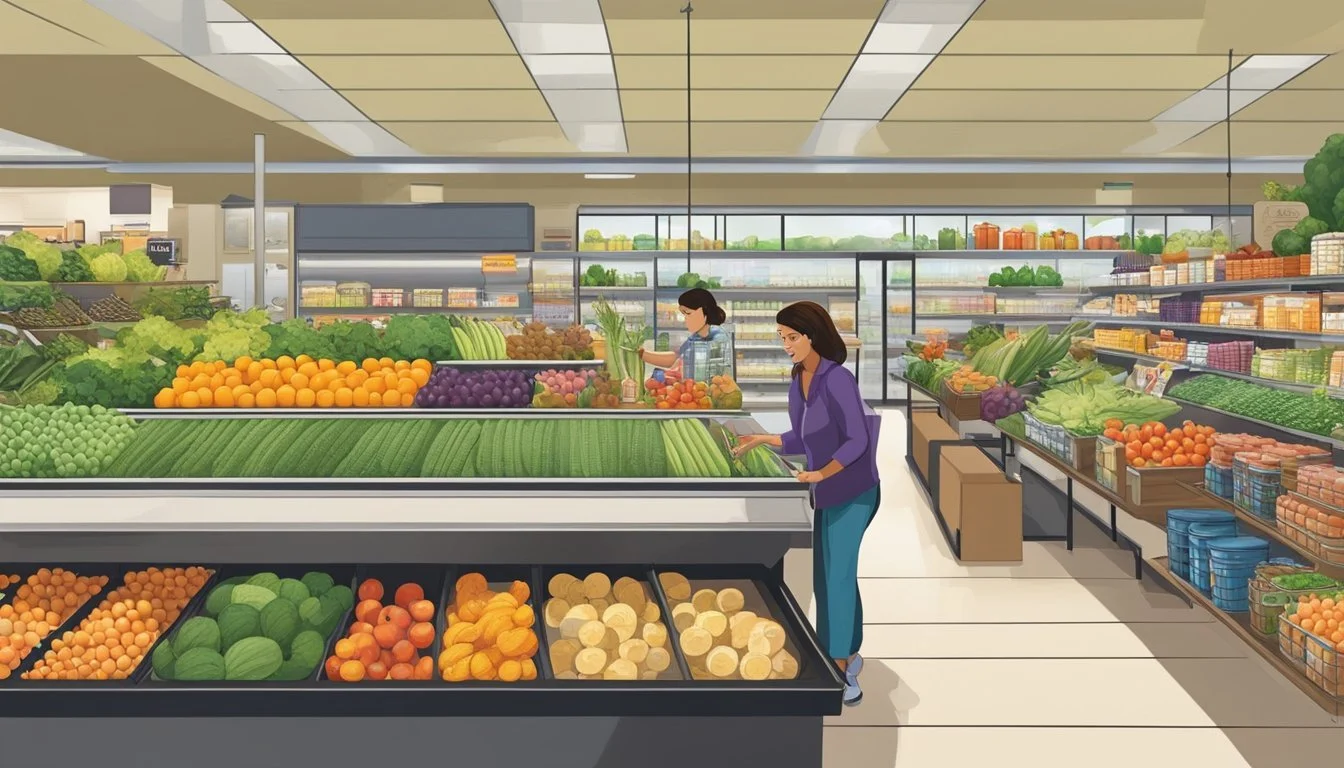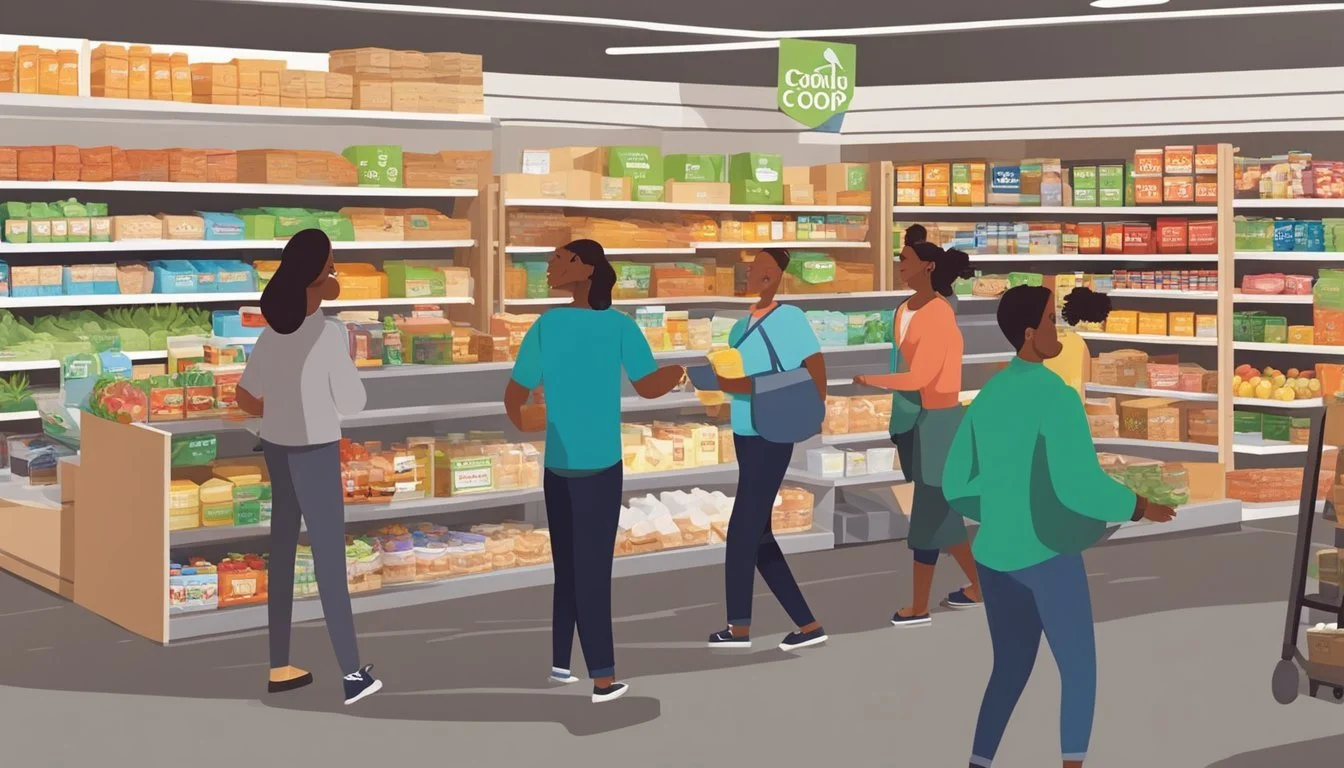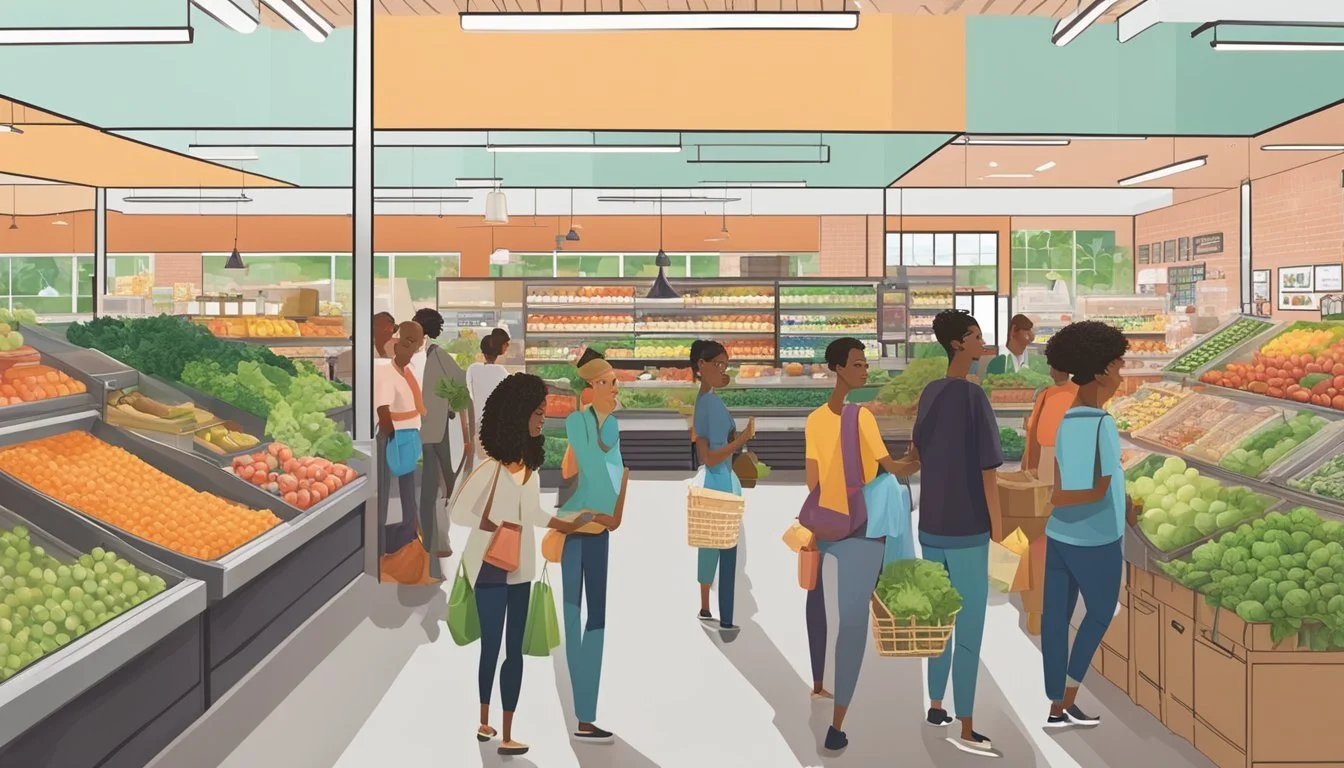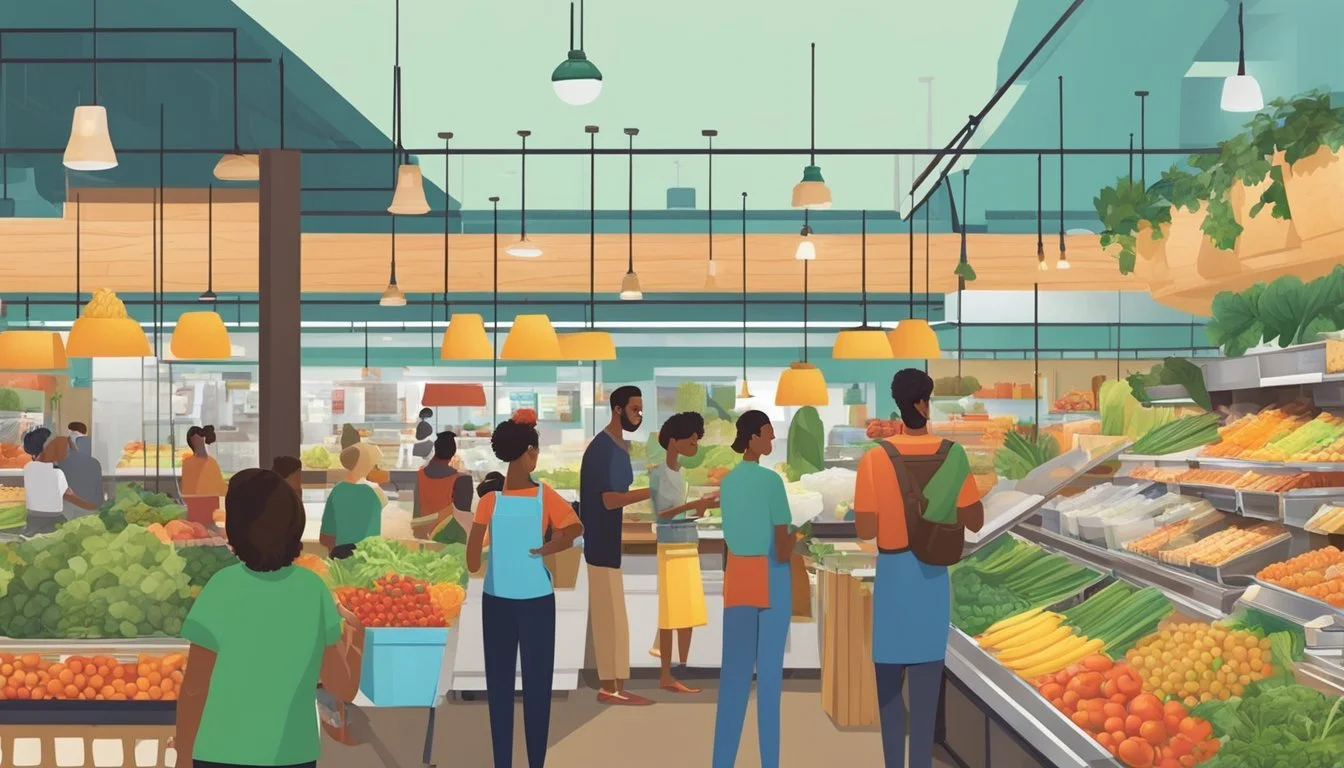Guide to Food Co-Ops in Carrollton, TX
Your Local Source for Community Sourced Groceries
Residents of Carrollton, TX have the opportunity to embrace a unique and sustainable way of shopping for groceries through food co-ops. These cooperatives operate on principles of mutual benefit, where members often have a say in the business and benefit from shared ownership. Not only do food co-ops focus on providing high-quality and locally sourced goods, including organic fruits and vegetables, grass-fed meats, and fresh seafood, but they also strengthen the local economy by supporting area farmers and producers.
Food co-ops come in various forms, some operating with set store hours while others work on an assembly box system, delivering fresh produce directly to your doorstep or providing a convenient pickup service. Carrollton's residents have access to co-ops that prioritize health by assembling boxes filled with a diverse range of organic produce. These cooperatives highlight a commitment to organic and natural foods that support both ecological sustainability and personal health.
As the demand for ethical and health-conscious options rises, co-ops in Carrollton respond by offering a community-centric shopping experience. Through a combination of the cooperative model and a focus on local, quality food, Carrollton's food co-ops serve as a hub for those seeking to make conscious dietary choices, engage with their community, and support the local food system.
What Is a Food Co-Op?
A food co-op, or food cooperative, operates on a model where community members have ownership and a democratic say in the business. They offer an alternative way of purchasing food, striving to support their member base and the local community.
Membership to a co-op usually involves purchasing a share or making a one-time equity investment. This membership allows individuals to vote on important decisions and potentially receive benefits such as discounts on products or a share in the profits.
The focus of food co-ops is twofold:
Local empowerment: They reinvest in the local economy, often sourcing from local producers.
Customer needs: They cater to their membership, providing a selection tailored to the community's preferences, which often includes organic and natural foods.
Food cooperatives are distinct from standard grocery stores in that they are independently owned and operated by their shoppers:
Transparency: Co-ops are open about their purchasing practices and product selections.
Accessibility: While aimed at members, many co-ops allow non-members to shop, albeit sometimes at higher prices.
Table of Membership Benefits:
Benefit Description Voting Rights Members elect the board and vote on major initiatives. Discounts Members may receive lower prices on co-op products. Profit Sharing A proportion of profits is often returned to members.
Through providing local, sustainable options and embodying cooperative principles, food co-ops present a community-oriented shopping experience. They are not just stores, but a reflection of the collective ethos of the members and the surrounding neighborhood.
Benefits of Joining a Co-Op
Joining a food cooperative offers multiple advantages, particularly for those who prioritize fresh, locally-sourced, and nutritious food. Members of a co-op are often granted shopping discounts, which can reduce the cost of purchasing high-quality groceries. These discounts incentivize the purchase of healthy food options such as organic fruits and vegetables.
Local and Real Food: Food co-ops focus on supplying products that are local and real. They prioritize a connection with local farmers and producers to ensure that members have access to food that supports the local economy and cuts down on transportation emissions, thereby offering environmental benefits.
Healthy Options: Co-op members have a say in the selection of available products, which means they can influence the store to stock more nutritious and organic items. This collective decision-making process leads to an inventory that typically emphasizes health over profit.
Member Benefits:
Equity: Members may receive financial returns like patronage refunds based on the co-op's performance and their own purchase volume.
Voting Rights: Members enjoy equal voting rights, giving them a direct impact on the co-op’s decisions and operations.
Community Support: Co-ops often engage in the local community by contributing to local causes and supporting food education. This boosts the co-op's role as a community hub.
Sustainability: By focusing on real food and reducing the reliance on extensive supply chains, co-ops help promote sustainable consumption patterns.
Given these benefits, contributors to Carrollton's food co-ops not only gain access to quality, healthy food but also become part of a community that values sustainability, local economy, and nutrition.
How Food Co-Ops Support Local Farmers
Food co-operatives (co-ops) play a pivotal role in supporting local farmers in Carrollton, TX, creating a platform for them to thrive in a competitive market. Local farms benefit from the cooperative model, which emphasizes community engagement and the promotion of sustainable farming methods.
Co-ops often purchase directly from local farmers, providing a stable outlet for their produce, vegetables, meat, eggs, and more. They frequently feature 100% grass-fed beef, pastured meats, grass-finished beef, and pastured chicken, highlighting the quality and sustainability of the products. This direct farm-to-fork approach not only assures freshness but also keeps the environmental footprint low due to reduced transportation.
By emphasizing farm-to-fork practices, co-ops encourage and facilitate sustainable farming methods. They offer educational opportunities for farmers on how to increase their sustainability measures, which can lead to more environmentally-friendly farming techniques within the community.
Furthermore, when consumers purchase from a co-op, they are indirectly investing in the local agricultural economy. The support helps local farmers maintain their operations and provides economic stability for farming families.
Typically, food co-ops offer higher rates of compensation to local producers compared to conventional grocery stores. This economic model allows farmers to preserve their livelihood without the need to compromise on the quality of their products or the integrity of their farming practices.
In summary, Carrollton's food co-ops are essential in supporting local farmers by offering fair compensation, promoting sustainable farming, and providing a reliable market for high-quality, local agricultural products.
Food Co-Ops in Carrollton, TX
In Carrollton, TX, residents have the opportunity to engage with local farm co-ops, which offer a plethora of fresh, locally-sourced food options. One notable example is the Farm to Fork co-op. Here, consumers can find a variety of products, including:
Grassfed meats: Angus, Longhorn, and Bison.
Poultry and Pork: Free-range and pastured options.
Seafood: Alaskan Sockeye salmon, halibut, and crab.
Additionally, the Cross Timbers Food Cooperative is an initiative that connects people in the North Central Texas region, which includes Carrollton, to local farms and producers. They emphasize sustainability and community engagement.
Local co-ops do not operate like traditional grocery stores. Instead, they often lack regular store hours and typically operate on membership or seasonal schedules. They are particularly beneficial for those interested in organic and natural food options. Food cooperatives in Carrollton function on principles that prioritize:
Community involvement and ownership.
Ethical food sourcing.
Access to healthful options.
The community food co-ops in Carrollton provide a platform for consumers desiring organic and natural produce. These entities also support the local economy by featuring goods from nearby farms. Shoppers interested in utilizing these co-ops can expect to participate in the local food movement, fostering stronger ties with food producers and gaining insight into the origins of their groceries.
Carrollton's food co-ops reflect a growing trend of conscious consumerism, where the focus is on quality and community rather than just convenience.
Shopping Experience at a Food Co-Op
When shoppers enter a food co-op in Carrollton, TX, they encounter an environment that prioritizes high-quality, fresh produce and healthy, clean meats. Unlike traditional grocery stores, a food co-op operates with the community's well-being in mind, often providing an array of locally sourced and organically grown items.
Merchandise Selection:
Produce: Often organic and locally grown, ensuring peak freshness.
Meat: Access to grass-fed and pastured options offers a more ethical and healthier choice.
Grocery Items: A focus on sustainable, healthy options with transparent sourcing.
The ambiance is that of a hybrid between a grocery store and a farmers market, with community engagement at the forefront. Customers are not passive consumers; they are members and have a say in the operations.
Member Benefits:
Ownership: Shoppers can become members to influence product selection.
Education: Co-ops are dedicated to informing members about food origins and production methods.
Savings: Membership can come with financial benefits, such as discounts on shopping.
A food co-op's support for local farmers and producers also boosts the local economy, creating a virtuous cycle of sustainability. Shoppers enjoy a curated selection that aligns with a commitment to environmental and economic stewardship.
Atmosphere:
Community-Centric: A friendly, supportive environment.
Educational: Shelves may include information about producers and farming practices.
Overall, a trip to a Carrollton food co-op offers shoppers an opportunity to make informed, conscientious purchases in a community-focused setting.
Membership and Participation
Food cooperatives in Carrollton, TX, typically operate on a membership basis, allowing members to partake in various benefits. The cooperative model is designed to serve its members, with many co-ops offering discounts and special offers to those who join.
Membership Options: Members may choose between different types of memberships, such as working and non-working memberships. A non-working membership often requires an annual fee, while working members contribute volunteer hours in exchange for additional discounts. Some co-ops may offer varying rates for students, senior citizens, or low-income members to foster inclusivity.
Volunteer Contributions: Volunteering is a cornerstone of many co-op models, as it keeps operations running smoothly and fosters a sense of community. In some cases, members may be able to volunteer in lieu of a portion of their membership fees, enhancing their connection to the co-op while receiving the benefits of membership.
Financial Participation: Membership may require an initial capital investment or a join fee. This investment typically goes towards the co-op's development and may be refundable under certain conditions.
Membership Type Capital Investment Annual Fee Volunteer Option Full Member Yes No Yes Non-working Optional Yes No
Community Engagement: Food co-ops often extend their community support through donations and sponsorships, reinforcing their commitment to local growth and sustainability. They may also provide educational programs related to food sourcing and healthy living, contributing to the community beyond the storefront.
By becoming a member of a food co-op, individuals support not only their own access to healthier, locally sourced products but also the wider community's economic and social well-being.
Educational Resources and Events
In Carrollton, TX, food co-ops provide more than just access to healthy, locally-sourced foods; they serve as important educational hubs in the community. Most co-ops prioritize education and community engagement by hosting a variety of events and workshops.
Workshops: These educational gatherings range from cooking classes that promote healthy and sustainable eating habits to sessions on urban farming techniques. Co-ops have become invaluable in teaching members how to make the most of their food, highlighting topics such as:
Sustainable Cooking: Utilizing local, seasonal ingredients
Nutritional Information: Understanding food labels and nutritional values
Community Engagement Events: Food co-ops also foster a strong sense of community through organized events. These can include:
Local Farmer Meet-and-Greets: Connecting consumers with the people who grow their food
Food Tasting Events: Introducing shoppers to new products and producers
Seasonal Festivals: Celebrating harvests or special holidays with the community
Educational Events: Through regular educational events, co-ops contribute to ongoing learning for both members and non-members alike. Examples include:
Seminars on Food Security: Discussions on how co-ops can help combat food deserts
Talks on Environmental Impact: Informing on how food choices affect the environment
Resources and Donations: Food co-ops often act as a resource for those looking to contribute to local initiatives or find volunteer opportunities. They typically accept donations, which are used to support:
Local Food Banks: Assisting those in need within the community
Educational Programs: Furthering the reach and impact of their mission
By participating in these events and utilizing these resources, members of Carrollton food co-ops can expect to not only enrich their own lives but also contribute significantly to the vibrancy and well-being of their wider community.
The Role of Food Co-Ops in the Local Economy
Food co-ops in Carrollton, TX, serve as critical hubs in the local economy through direct support of various entities. By focusing on local food systems, they create a stable market for artisan food producers, including artisan bakeries, traditional butchers, and craft breweries. This collaboration often extends to other small-scale producers such as cideries, small batch distilleries, and even farm to table food trucks.
Donations and Sponsorships: These co-ops often contribute to the local economy via donations and sponsorships. Their engagement goes beyond mere commercial transactions, as they invest in community events and initiatives that align with their ethos of sustainability and local empowerment.
Local Producers Support: By prioritizing purchases from local farmers and producers, food co-ops ensure that a significant percentage of their sales stays within the community. This model bolsters gourmet grocery stores and online farmers markets in Carrollton, reinforcing the significance of locally-sourced produce.
Farm to Table: Food co-ops often provide critical support to farm to table restaurants, enhancing Carrollton's reputation as a destination for foodies. These affiliations help maintain a vibrant local food scene, assuring patrons of fresh, quality ingredients sourced right from the community.
Economic Multiplier: The participation of food co-ops in local economic systems acts as an economic multiplier. Money spent at these co-ops circulates within Carrollton, benefitting wineries and a variety of other local businesses, thus reinforcing the economic infrastructure.
Through these actions, food co-ops in Carrollton underpin the local economic health by fostering an interconnected network of producers, businesses, and consumers that thrives on communal support and a shared commitment to sustainable growth.
How to Get Involved
Joining a food co-op in Carrollton, TX, offers a myriad of ways to immerse oneself in the local food scene. Those interested can start by seeking membership at nearby food cooperatives. Membership often involves purchasing shares, which entitles members to product discounts, as well as voting rights on co-op matters.
Membership Benefits:
Discounts on products
Voting rights on co-op governance
Support local agriculture
Becoming a volunteer is another path for community involvement. Volunteers contribute their time and energy, which is crucial for co-ops to function effectively. They can help with daily operations, such as stocking shelves or organizing events, fostering a true sense of community engagement.
Volunteer Opportunities:
Stocking shelves
Assisting in daily operations
Event organization
For those who may not want full membership or can't volunteer regularly, participation in a buying club is an alternative. A buying club allows individuals to collectively purchase goods in bulk, directly from producers, ensuring access to fresh, locally sourced products.
Buying Club Participation:
Bulk purchase savings
Access to local products
In summary, residents of Carrollton can get involved with food co-ops through membership, volunteering, or joining a buying club. Each avenue enhances local involvement and supports community-based agriculture, echoing the values of sustainability and cooperation.

